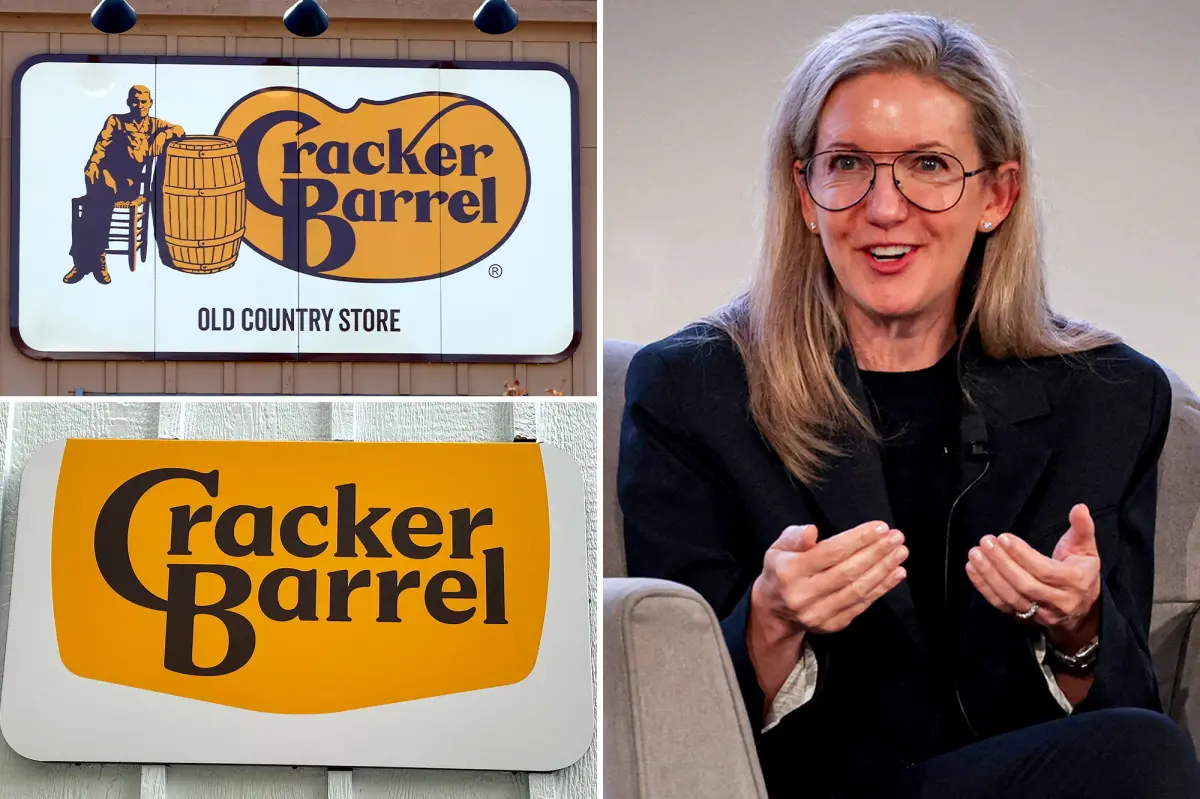Copyright New York Magazine

Last weekend, staffers at Graydon Carter’s Air Mail gathered in Genoa, where one of the site’s editors was getting married in a high-society fête at a family palazzo. It was a fitting setting for a venture that aspired to give a glossy treatment to an online-only publication — think of it, Carter said at its launch in 2019, as “the weekend edition of a nonexistent international daily.” Catering to highbrow news consumers with travel recommendations and magazine-length dispatches from across the globe on fashion, art, scandal, and politics, it was a taste of Carter’s Vanity Fair for the digital set. The issue hits your inbox every Saturday, Maureen Dowd once wrote, “like something wrapped in cashmere.” Now it will come wrapped in Puck. After weeks of negotiations the newsletter company officially acquired Air Mail in a deal that reportedly values it at $16 million — half as much money as Air Mail had raised since 2019. Carter and Alessandra Stanley, Carter’s co-editor, are stepping down, and Julia Vitale, the deputy managing editor, will take their place. On its surface, the Air Mail–Puck deal — or AirPuck, as media reporters have taken to calling it — feels cosmically ordained. Air Mail will now be overseen by Puck’s co-founder Jon Kelly, a former editor at Vanity Fair who was once Carter’s assistant; the merger could be seen as a marriage of mentor and mentee’s post–Vanity Fair newsletter enterprises. In truth, it has exposed bad blood between the two camps, as well as the gap between Air Mail’s ambitions and the reality of its struggling finances. Neither publication is profitable, and the deal is mostly a stock exchange. The question of how Air Mail will be absorbed into Puck’s suite of newsletters — or franchises, as they are called — has been a particular source of anxiety among Carter’s staff. Puck CEO Sarah Personette said at a company all-hands that they would “not run two separate sites” but rather “think of Puck as sort of the master brand” and Air Mail “as a franchise underneath that,” according to the media newsletter Breaker. Puck has made such purchases before: Last year, it acquired Artelligence, a Substack about the global art market by Marion Maneker. Officially, Kelly is saying readers won’t notice much that’s different. “The experience of Air Mail is going to be really largely unchanged in substantial ways,” Kelly said in an interview, with the Saturday issue remaining the hero product. He added, “We would not buy Air Mail if we did not love it.” Puck, too, is a flavor of Carter’s Vanity Fair. It was co-founded by Kelly in 2021 as “a new media company focused on the intersection of Wall Street, Washington, Silicon Valley, and Hollywood” — essentially the same purview as The Hive, a vertical of Vanity Fair that Kelly co-founded in 2016 under Carter’s leadership (and that new Vanity Fair editor Mark Guiducci recently shuttered). Each franchise is helmed by a writer who has an equity stake in the company, such as Matt Belloni’s What I’m Hearing, which covers Hollywood, and Lauren Sherman’s Line Sheet, which covers fashion. But unlike Air Mail, Puck is less a luxury product than gossipy catnip for insiders in various industries in Los Angeles, Washington, and New York. It has some 95 staffers, compared to Air Mail’s 30. Air Mail once aspired to be purchased by deeper-pocketed buyers with a payday that would flatter Carter’s investment in the project. In February 2024, Semafor reported that Standard Industries — the glamorous roofing company that was an early investor in Air Mail — was in talks to acquire Air Mail for $50 million. A few months later, in September, the New York Times reported that Air Mail had hired the boutique investment bank Raine to explore a sale; talks with Standard Industries had fallen through. Carter also planned to continue his involvement with Air Mail in the event of a sale, according to the Times. But it’s not hard to see why Carter, who is 76, would not want to stick around now that his former assistant is part of the team in charge. “It was a very different thing for Graydon to build Air Mail than to go run it as a vertical inside Puck,” a source familiar with the discussions noted. “I think everyone would understand that.” They added, “Graydon would have preferred that whoever acquired Air Mail was thinking about investing in it at the level that he was investing in it. Whereas Puck I think is more of just a pure-play digital media company.” What remains of Air Mail after Carter? The publication has built its own status (Larry David famously wore an Air Mail hat in an episode of Curb Your Enthusiasm) that could persist beyond his departure. For readers who want a dose of old-world charm with their stories about French political scandals and reviews of books about P. G. Wodehouse’s Jeeves and Wooster, Air Mail is one of the last of its kind. But the Saturday newsletter comes with the subject line “Graydon Carter here …” — the sensibility of the whole project enmeshed with his persona. If Puck viewed Air Mail as a larger and more significant version of its Artelligence acquisition, snapping up Air Mail’s subscribers and advertising dollars, it remains unclear whether those subscribers and advertisers will stick around now that Carter is gone. Raine brought Puck the Air Mail opportunity in the spring. A key moment for Puck’s leadership came from an analysis, conducted by Raine, of the Puck and Air Mail subscriber files that looked for duplicate emails to see if there was much audience overlap. Some hypothesized it could be anywhere from 20 to 40 percent, given the shared DNA of the two publications. But the survey yielded a number in the single digits. “This was an opinion-elite audience that had loved magazines and had very few choices in the post-print era; it also was a product that had a number of endemic advertising opportunities, and we weren’t going to be buying an audience that was already subscribed to Puck,” Kelly said. “We knew we were going to bid on this.” Carter was initially more compelled by another suitor, RedBird Capital, whose founder, Gerry Cardinale, had been in talks with Raine and Carter about acquiring Air Mail. But Cardinale is in the midst of trying to buy The Telegraph, and it became clear a few weeks ago that RedBird was stalled, leaving Puck as the remaining option on the table, according to a source familiar. Lachlan Cartwright, the mischievous media reporter behind Breaker Media, has been a thorn in both parties’ sides throughout the deal. Cartwright was the first to report that Puck had entered into an exclusive agreement to buy Air Mail, far in advance of the planned announcement; Carter was giving a talk uptown at the Cosmopolitan Club when Cartwright called to say he was about to break the news. Multiple leaks about negotiations and interpersonal tensions continued to show up in the newsletter, and there has been a whirlwind of speculation around the source of the leak. Air Mail staff see Puck as “down-market,” according to one insider. Air Mail’s advertising team was thrown for a loop when, shortly after Breaker broke the acquisition news, Puck’s ad sales team sent emails to Air Mail clients, who include high-end retailers like Hermès and Prada, which caused confusion and in some cases concern with ad buyers. Both publications are on track to lose money this year. What’s the theory that, together, they might lose less — or even, one day, make a profit? Perhaps Air Mail’s sales team will get over its reluctance to be associated with Puck and help it land larger luxury deals. A sales deck titled “Project Aviator” claimed that Air Mail has an email list of more than 500,000 people, about 50,000 of whom are believed to be paying subscribers according to Breaker, and if that’s true — and if those subscribers stick around after Carter’s departure — presumably there’s a slimmer version of the franchise that could break even. There’s cost-cutting to come, as what’s left of Air Mail’s 30-person staff, after presumed layoffs and departures, moves out of its Greenwich Village townhouse and into Puck’s offices in the Financial District. (Puck says Air Mail’s brick-and-mortar store in the Village will remain open.) At least five full-time Air Mail employees are interviewing at other publications, and some have already left, including head of communications Harrison Vail, who is now a partner at a communications advisory firm. In October, Air Mail held a dinner party with journalists, authors, and celebrities at Carter’s Waverly Inn for its inaugural Tom Wolfe Prizes for Fiction and Reportage. The winners were Vincenzo Latronico, whose novel Perfection has been buzzed about for satirizing fashionable millennials, and Meghan Daum, who in recent years has become an essayist and podcaster in the anti-woke brigade. The prizes, for a moment, felt like the start of something new. They now appear to be a kind of swan song.



